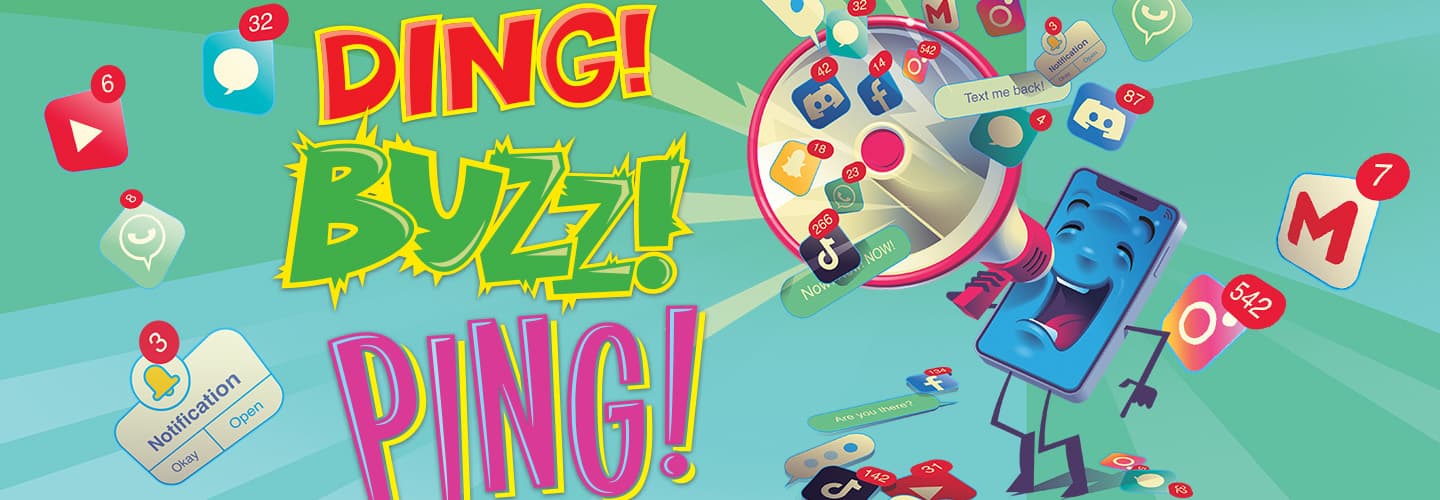Courtesy of family
Scarlett Mojica
Scarlett Mojica gets dozens of notifications on her phone each day. Ding—there’s a new show on Netflix! Buzz—a friend wants to play Roblox and chat on Discord. Ping—there’s a sale on lip gloss!
The messages come at all hours of the day. They buzz when Scarlett’s trying to do her homework, during dinner, and even in the middle of the night.
“It’s annoying,” says the sixth-grader from Los Angeles, California. Sometimes the only way Scarlett can focus is to turn off her phone completely.
A new study found that many kids are even more inundated with alerts than Scarlett is. An organization called Common Sense Media recently surveyed about 200 kids ages 11 to 17. It found that about half of them get at least 237 notifications each day. Some get close to 5,000!
All those alerts can not only be distracting but also harm your health. How can you stop them from disrupting your life?

